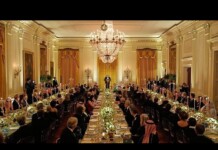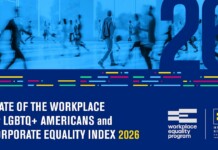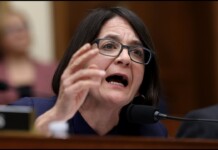The LGBTQ+ community has been represented in film since it began over 100 years ago. However, the depictions of the LGBTQ+ community have not always been flattering due in equal parts to historic censorship and systemic prejudice. After the Stonewall Riots in 1969—which were instrumental in societal change—queer movies began to make their way into the mainstream in the 1970s, as the gay community was seen as a viable target market. It wasn’t until the 90s, however, that several independent filmmakers began properly representing the queer community with engaging and empathetic stories, eventually known as the New Queer Cinema movement. From this point onwards, society continued to progress in an upward motion, with Hollywood heavyweights even taking on queer film roles. With all of that in mind, here are the best LGBTQ+ movies from the 2000s, chosen for their impact on queer cinema.
Brokeback Mountain
Brokeback Mountain is an adaptation by Ang Lee, based on Annie Proulx’s original short story. It follows the story of Ennis del Mar (the late Heath Ledger) and Jack Twist (Jake Gyllenhaal), a cowboy and a ranch hand who secretly fall in love while working together in the summer of 1963. It is regarded as a major milestone in Gay Cinema, despite its straight male leads. It is also considered the first major mainstream LGBTQ+ film.
Milk
Directed by Gus Van Sant, Milk recounts the true story of Harvey Milk, America’s first openly gay elected official, and his emblazoned battle for gay rights. The movie follows Milk as he helped to shape a community for LGBTQ people in San Francisco in the 70s when homophobia was still rampant. Sean Penn won several awards for his brilliant performance in this critically acclaimed film.
A Single Man
Fashion designer Tom Ford’s directorial debut is an incredibly stylish and emotional film based on Christopher Isherwood’s novel of the same name. A Single Man tells the story of George Falconer (Colin Firth), a British University Professor living in L.A. who becomes severely depressed after his long-time partner is killed in a car accident. Firth, despite not having many scenes, puts his screen time to good use and uplifts this otherwise sad tale, for which he was nominated for an Academy Award.
Hedwig and The Angry Inch
The rock opera Hedwig and The Angry Inch is John Cameron Mitchell’s adaptation of his off-Broadway musical. It follows the story of the titular character Hedwig (Mitchell), an aspiring rock star who flees from East Germany to America after a botched gender affirmation surgery. The amazing original music steals the show in this fun, campy, cult classic which is also director, writer, and star John Cameron Mitchell’s directorial debut.
C.R.A.Z.Y.
Directed by the late Jean-Marc Vallée, this powerful coming-of-age story is about a French-Canadian boy named Zachary (Marc-Andree Grondin) as he struggles with his budding homosexuality and homophobia in the ’60s and 70s. The film was a critically acclaimed box office success and boasts a stellar soundtrack.
Saving Face
Directed by Alice Wu, Saving Face tells the story of Wilhelmina, a Chinese-American surgeon and closeted lesbian who falls in love with a woman, and must keep it a secret from her conservative mother (Joan Chen). The script is loosely based on Wu’s personal experience of coming out to her traditional Chinese mother. Not only does it tell an LGBTQ+ love story, but it also features an all-Asian-American cast—which, according to Indie Wire, almost didn’t happen.
Without these breakout movies, the representation we see in Hollywood now would be very different. What other movies do you think helped shape the films we see today? Let us know in the comments on Facebook or YouTube.














